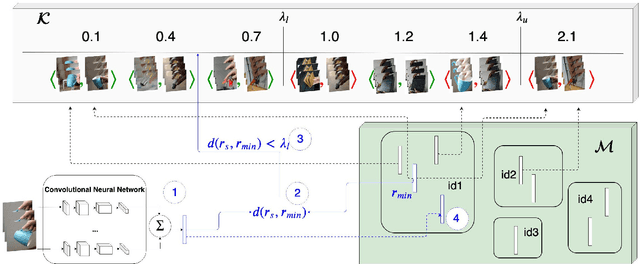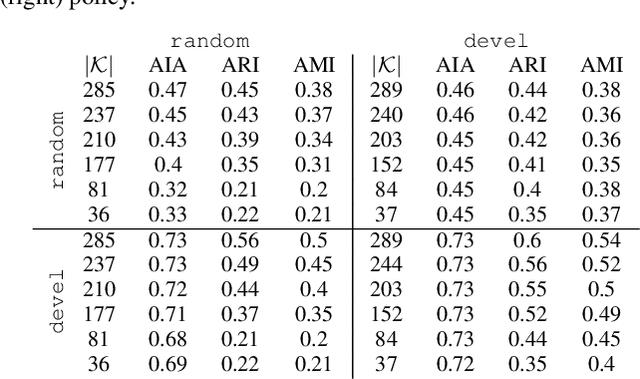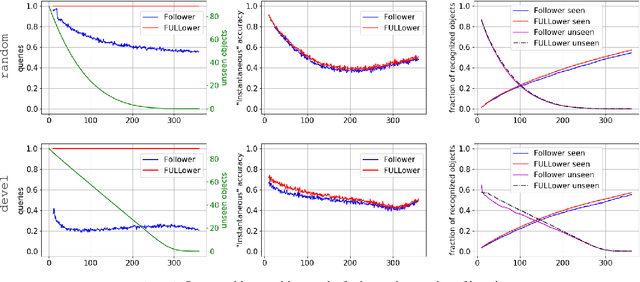Continual egocentric object recognition
Paper and Code
Dec 06, 2019



We are interested in the problem of continual object recognition in a setting which resembles that under which humans see and learn. This problem is of high relevance in all those applications where an agent must work collaboratively with a human in the same setting (e.g., personal assistance). The main innovative aspects of this setting with respect to the state-of-the-art are: it assumes an egocentric point-of-view bound to a single person, which implies a relatively low diversity of data and a cold start with no data; it requires to operate in a open world, where new objects can be encountered at any time; supervision is scarce and has to be solicited to the user, and completely unsupervised recognition of new objects should be possible. Note that this setting differs from the one addressed in the open world recognition literature, where supervised feedback is always requested to be able to incorporate new objects. We propose an incremental approach which is based on four main features: the use of time and space persistency (i.e., the appearance of objects changes relatively slowly), the use of similarity as the main driving principle for object recognition and novelty detection, the progressive introduction of new objects in a developmental fashion and the selective elicitation of user feedback in an online active learning fashion. Experimental results show the feasibility of open world, generic object recognition, the ability to recognize, memorize and re-identify new objects even in complete absence of user supervision, and the utility of persistency and incrementality in boosting performance.
 Add to Chrome
Add to Chrome Add to Firefox
Add to Firefox Add to Edge
Add to Edge